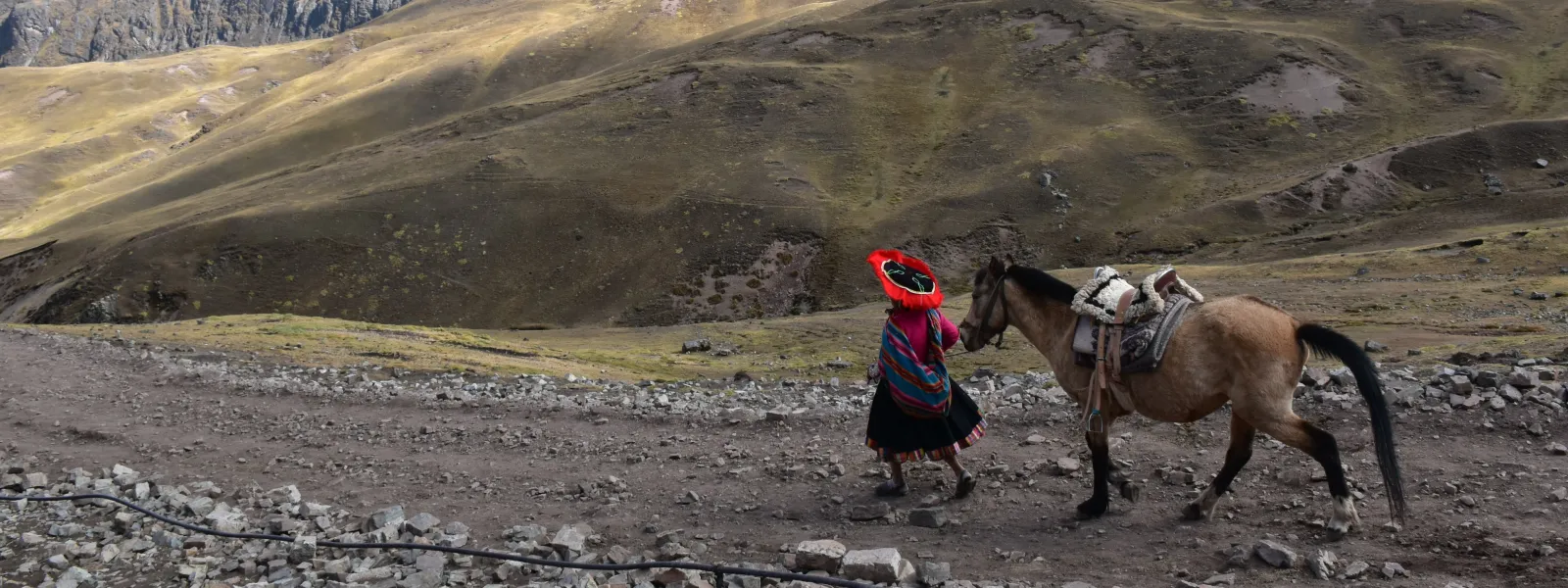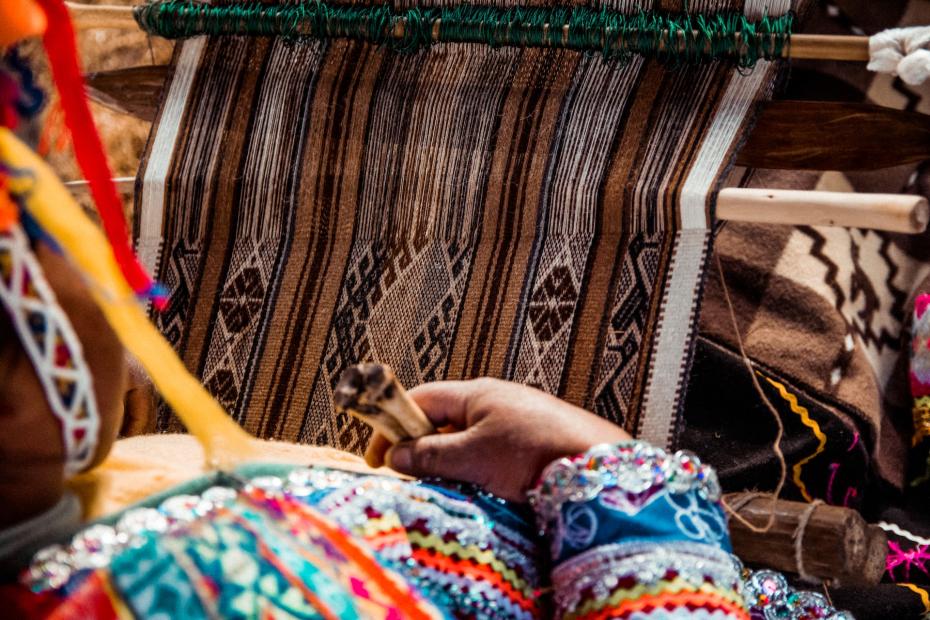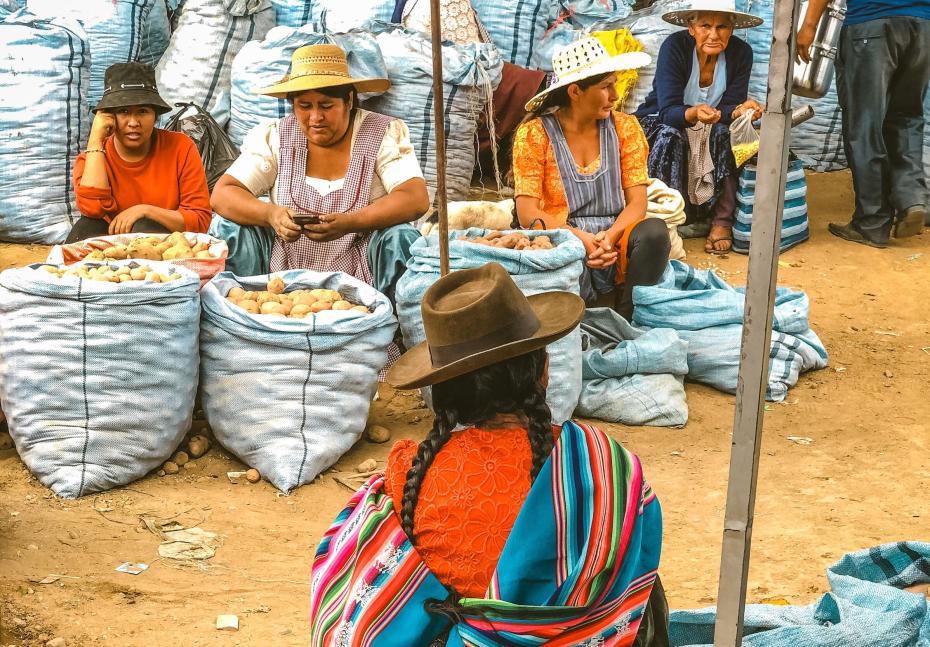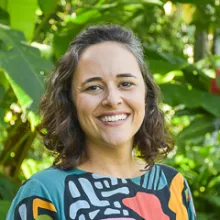
Climate finance and a gender perspective: two concepts that must be intertwined
Photo: Götz Friedrich on Pixabay.By Camila Bartelega, Florencia Ortúzar and Francisco Pinilla*
Women and girls are disproportionately affected by the onslaught of the climate crisis.
This is because they are usually the ones responsible for fetching water and food, and for taking care of children, the elderly, and the sick. Climate change makes this unpaid care work much more difficult.
Evidence also shows that women and girls are more vulnerable to natural disasters. It's estimated that they're 14 times more likely to die than men when natural disasters strike. This may be because they are caring for vulnerable people, because they are often not taught how to swim or climb trees, or because they wear inadequate clothing to respond, amongst others.
On the other hand, as the climate crisis creates chaos and increases conflict, they are more vulnerable to sexual assault and domestic violence. This is fueled by the growing frustration of a world in which resources are becoming scarcer and more difficult to obtain.
It is clear, then, why it is important to include a gender perspective when talking about how best to address the climate crisis. But doing so is important not only to "level the playing field" for historically disadvantaged women, but also because they have a lot of knowledge to contribute, and the additional burdens they carry affect their ability to contribute to the best solutions.
Including a gender perspective in climate action is therefore both fair and desirable for more effective and beneficial outcomes. If they are excluded, women lose, and we all lose.
For Maite Smet, Executive Director of the International Analog Forestry Network, when we talk about a gender approach, or even a feminist approach, we are talking about issues of power.
"Working from a gender and climate justice perspective is about wanting to change systems of power that have historically oppressed and socially excluded people," she said. "It opens up the possibility of including people who have not been part of important climate conversations and decisions."
Now let's look at the relationship between gender and climate finance, a critical element in the uphill battle to preserve a livable planet.
Gender and climate finance
Tackling the global climate crisis will require transforming the way we live on the planet, including energy and food production, infrastructure and transportation. This will require significant financial resources. The Paris Accord stipulates that developed countries must provide financial assistance to the least developed and most vulnerable countries.

This brings us to the world of climate finance: The provision of funds to implement mitigation and adaptation measures. All climate finance must have a gender perspective, as the impacts of the climate crisis disproportionately affect women and girls.
What does this mean?
It means funding that understands and intentionally addresses these differentiated impacts. It means that funding decisions are made with the participation of women, recognizing that they have valuable knowledge of their territories and are therefore the bearers of valuable solutions. Finally, it means making funding available and accessible to women.
According to Natalia Daza, gender monitor of the Green Climate Fund for Latin America and the Caribbean and member of the Women Environment and Development Organization, the gender approach to climate finance has a lot to do with understanding that inequality shapes the way social relations take place.
"Women are affected differently, usually more negatively, by the impacts of climate change,” she explained. “That's why civil society has a very important role to play in ensuring that climate action includes the voices of women, LGBTIQ+ and feminist organizations, from design to implementation.”
The Gender Approach in the Green Climate Fund
At AIDA, when we track climate finance coming into the region, we focus on the Green Climate Fund (GCF), the world's leading climate fund, which is accountable to the United Nations Framework Convention on Climate Change. Although far from perfect (not least because what is written is not necessarily followed), it is perhaps the most progressive fund on gender issues.

The GCF's gender policy recognizes that climate change affects women and men differently and emphasizes the importance of women's participation and leadership in decision-making processes related to finance. It is considered progressive, compared to other funds, because of its cross-cutting approach, which seeks to integrate gender considerations into all aspects of financing.
According to Seblewongel Deneke, the GCF’s gender specialist, any policy or strategy that emerges from the fund must take the gender perspective into account. "It is clear that both women and men contribute equally and should have equal opportunities. But we need to recognize that there are differentiated challenges for men and women, and that both are part of the solution."
The policy includes capacity building, tools and materials. "The climate debate is not just about the climate agenda; it brings other elements of inequality to the table. We need to change access to education and health and ensure the basic rights that every individual should have, including women," Deneke said.
What is needed?
We cannot deny that we have made progress. The importance of the gender perspective in climate action and finance is discussed and recognized. There are policies to ensure it, institutions to implement it, and sometimes even staff and budgets to do so.
But the job is not done. Women still have less access to climate finance and fewer positions of power. And mitigation and adaptation projects often fail to consider the disproportionate impact of climate change on women. It is not easy to change things when they move with the inertia of what has always been. But we cannot give up.
At AIDA, we have integrated a gender perspective across all our work. In doing so, we have broken new ground on many fronts and improved our results, and not just for the benefit of women.
As a regional node of GCF Watch, an international observatory that monitors the Green Climate Fund, AIDA is a bridge between decision-making at the Board level and the territories that receive the projects financed.
Florencia Ortúzar, Senior Attorney at AIDA, says that it is not enough to have funds, there must also be adequate investments. "Civil society monitoring is key to ensure that investments in the name of climate are made with respect for human rights and with a gender focus, and to achieve the maximum potential of the funds allocated to these types of projects and programs."
This was the theme of an in-person event held in Rio de Janeiro in June. Supported by the Global Alliance for Gender and Green Action (GAGGA) - and organized by CASA Socio-Environmental Fund, AIDA and Both Ends - the event aimed to train and motivate regional organizations with a feminist base to be better prepared to follow up on the Green Climate Fund.
Lola Gutiérrez, director of the Bolivian Women's Fund, who attended the event, emphasizes the importance of learning more about the fund, other countries' experiences, and how to access these resources. "Women are affected in different ways by extractivism and climate change, and we are fundamental actors in the solution. It is important to be present and to problematize what is happening."
One of the conclusions of the event was that with the progress in policies and with a narrative that is much more receptive to gender, we can stop being gatekeepers that prevent the passage of bad projects and become strikers that propose projects to be implemented to stop the climate crisis.
Therein lies the hope that these grassroots organizations will soon be the ones accessing funds and proposing solutions. Only then can we celebrate and rest.
* Camila Bartelega is a fellow with AIDA's Climate Program, Florencia Ortúzar is a senior attorney and Francisco Pinilla is a digital communications strategist.
Camila Bartelega

Camila Bartelega is Brazilian and an economist with AIDA's Climate Program working in Belo Horizonte (Brazil). She has a degree in International Relations from the Universidad Estatal Paulista and in Economics from the Universidad Federal de Paraná. She also has a postgraduate degree in Development and Social Policies from the University of Minho (Portugal). Camila has significant experience working with civil society organizations and the United Nations. She is currently concluding a Master's degree in Economics at the Universidad Estatal de Campinas with a research related to climate finance.
